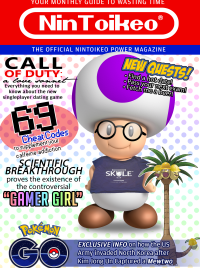Developers of the popular educational system University, widely used among teens and young adults, announced on Tuesday that it will now be free to play. “Our aim,” added executive Al McMater, “is to make university more relevant to its target demographic.” In order to make this possible, the developers have introduced a new range of features that will be available only as “in-lecture purchases.” For users who wish to keep their university experience completely free of charge, continuing to play in Basic mode is not expected to significantly interfere with the average user’s experience and should not impede the resourceful student from eventually acquiring a degree. The in-lecture purchases only include deluxe features such as the Caffeine Booster power-up ($0.99), enhancing students’ ability to stay awake in class, or the ability to connect to lecture audio and interact with other students and professors through the use of a rental headset ($11.99/hour).
These features will be available under the “Power-Ups” tab soon to be introduced to ACORN on an easily-accessible drop-down menu right below “Academic History,” where students will be able to compare their high scores with other members of their program. Live notifications through the Blackboard app will also alert students in real time whenever a classmate beats their score on an assignment and will present students with the option to either “congratulate” or “heckle” said opponent. The app will also suggest power-ups that may help students perform better in future in order to further enrich the user’s educational experience. For example, an alert may read, “Before beating you by 37% percent on your midterm, Simon purchased 12 Memory Super Boosts and one TA Who Marks Leniently. To try these for yourself, click the link below.”
During the days following the announcement of the new in-lecture purchase system, the developers of University were reportedly inundated with complaints about the financially-biased nature of the system, where students from higher-income households received more advantages than other students and had a better chance of eventually acquiring a degree. In an ultimately unsuccessful first attempt to appease the public outrage, McMater was reported to have explained that this was really no different from the way that University had always been (and, frankly, life for that matter). When this failed to make anybody feel any better, executives agreed to introduce another alternative method for students to access the bonus features: U-tokens. “Our initial idea was to have students earn U-tokens by avoiding obstacles and such, and then use them to purchase power-ups instead of real money,” explained McMater, “However, having students jump over lava pits in the hallways between classrooms raised some accessibility concerns, especially in light of the University’s recent efforts to install ramps and elevators across campus, so the idea was ultimately scrapped. Now,” continued McMater wistfully, “students will simply run down hallways and collect the tokens by jumping into the air.”
In order to add an extra level of excitement, it has been rumored that not only U-tokens will be available for collection, but also Dining Dollars and the rare GPA Point. When asked about her opinion on the new point collecting system, Ashley, a third year psychology student and part of the trial group testing out the new and improved University, stated, “Well, it’s like super fun except for that time when a frosh leapt off the balcony in Con Hall while trying to collect a GPA Point.”
Although some students like Ashley gave generally positive reviews, other students involved in the trial seemed less enthused. When reporters interviewed an anonymous student lying comatose in the alleyway behind the Sandford Fleming Building after inadvertently running down his stamina bar, they were met with only a faint gurgling sound which could reasonably be construed as unenthusiastic. Eric, a fourth year chemistry major, was also displeased after racking up a charge of $3,283 on his ACORN account before realising that opening textbooks was a deluxe feature.
Sources have confirmed that in addition to the already numerous changes students should expect over the next school year, University will also be experimenting with paid advertisement as a way of supporting the new influx of free users. Initial trials played with the idea of “in-lecture advertisements.” However, catching students’ attention in this setting proved to be a difficult task. Only 30% of students involved in the trial noticed when their professors interjected lecture with an upbeat jingle about Shredded Wheat and of that 30%, 23% demonstrated a disturbing lack of understanding of what constitutes course material by attempting to work the concept of shredded wheat into their final essays. Even more disturbing, several professors included at least one breakfast cereal-related question in their final exam.
“As you can see,” McMater concluded, “we still have a few kinks to work out but I am confident that our user base will adjust to the changes and become as excited as the team and I are about this new endeavour.” At press time, McMater was seen being dragged towards the prototype lava pit by a hoard of decidedly non-excited-looking students.



